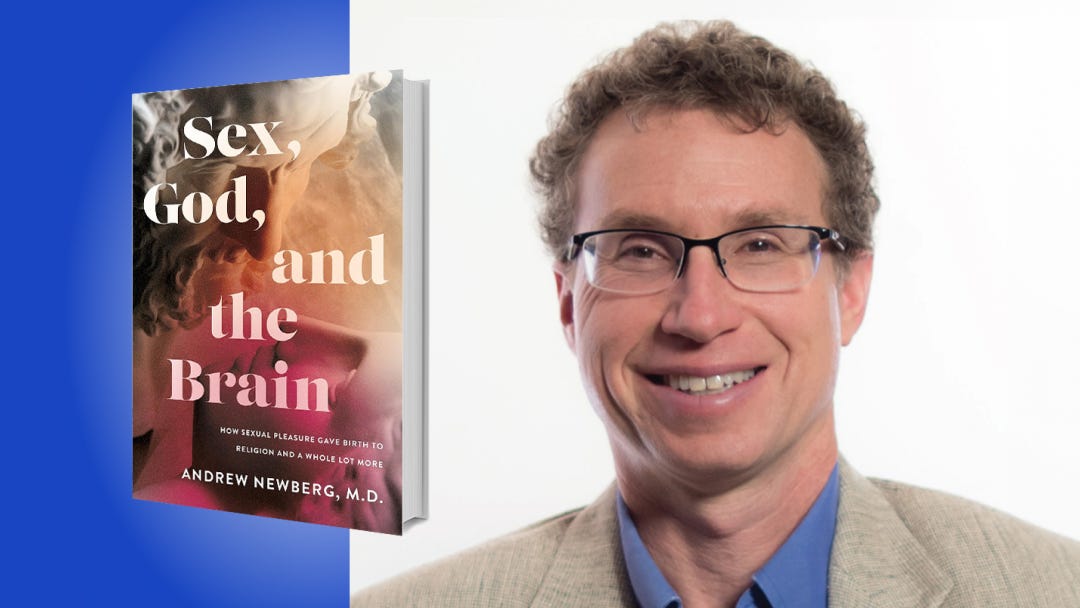Why Sex and Spirituality Light Up the Same Parts of Your Brain
Andrew Newberg shares 5 key insights from Sex, God, and the Brain: How Sexual Pleasure Gave Birth to Religion and a Whole Lot More.
What does sex have to do with religion? We tend to think of these as very different -- even opposite -- human instincts, but they may in fact be deeply connected, according to Andrew Newberg, author of the new book Sex, God, and the Brain: How Sexual Pleasure Gave Birth to Religion and a Whole Lot More. Andrew is a medical doctor and Director of Research at the Marcus Institute of Integrative Health at Thomas Jefferson University Hospital and Medical College, where he also teaches Emergency Medicine and Radiology. Here he is to share 5 of his big ideas.
1. Why do we think spirituality and sexuality are linked in the first place?
I want to start by answering this question from the religious perspective. In the Bible, think about what happens when humanity is first created by God. It says in the book of Genesis that as soon as man is created by God, God blesses human beings and says, “be fruitful and multiply” before adding, “believe in me.” Before God says to engage in religion, God tells human beings to procreate. We do that through sexuality. It is a creative process.
In fact, if you go back to the very first line in the Bible, what does God do before anything else? God creates the heaven and the earth. God is the creative force, in the context of religion, that creates everything around us. Whether you believe in God or not, the concept of creation and the ability to create lies at the heart of virtually every spiritual tradition.
2. Why do we think spirituality and sexuality are linked, from a biological perspective?
When you walk into a church, a mosque, or a synagogue, or begin to meditate, many different parts of the brain become involved. For anyone who does have a spiritual life, I think they would understand that because when you realize the richness and diversity of all the different kinds of spiritual practices, rituals, and experiences, it makes sense that it must engage many different parts of the brain.
For example, if you’re thinking about God or the nature of the universe, you might use the cognitive parts of your brain. If you’re feeling a sense of awe or love, you might use the emotional centers of your brain. If you see an image or feel something profound going on inside your body, these are the sensory areas of your brain. All of these can become involved when engaging in these kinds of practices and experiences. One of the most interesting changes we have observed over the years is a change in the autonomic nervous system. The autonomic nervous system is what basically connects our brain to our body, allowing us to experience feelings of arousal and energy or of calmness and blissfulness. When people engage in religious and spiritual practices, they can have either of those kinds of experiences.
“God is the creative force, in the context of religion, that creates everything around us.”




